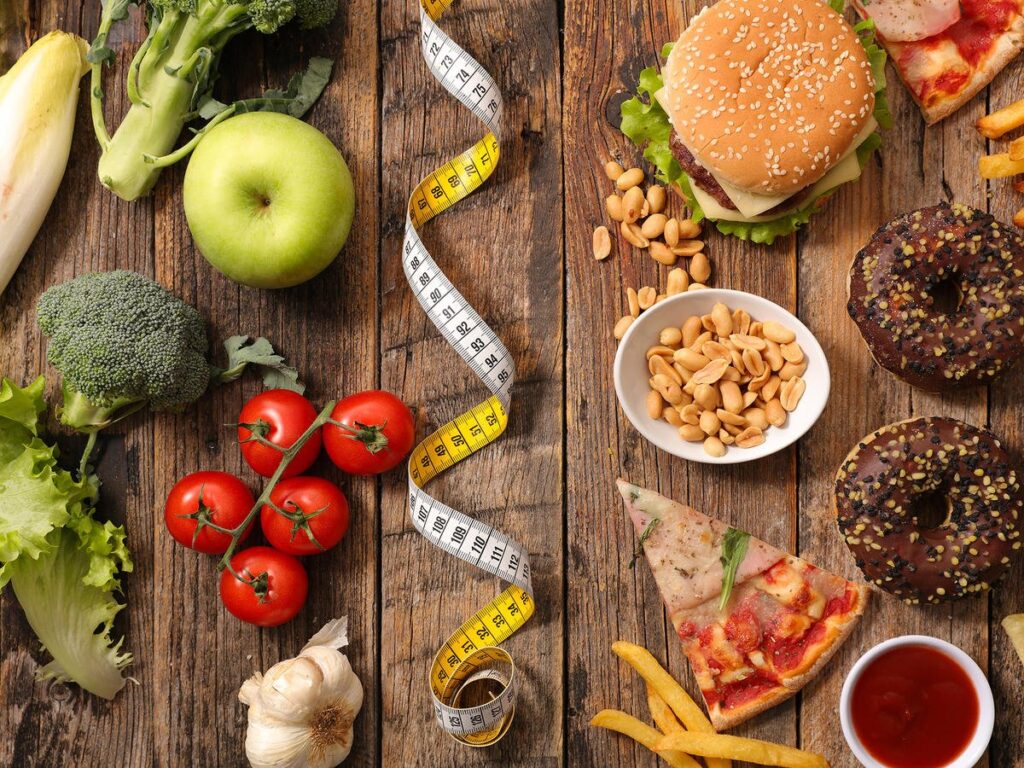
I met Lucy for the second time last week. The first time we met was in August. Unlike the first meeting, last week she was looking brighter, energetic and more jovial. See, Lucy has been trying to manage her weight for a while now. Last year her physician advised her change her diet and lose weight; she is overweight, has hypertension, and her blood glucose levels have been misbehaving. It was this or the option of diabetes and kidney disease. Like many Kenyans, when she was told to lose weight, Lucy consulted google, social media and her friends. The proposals were many but she chose the alkalizing diet. It promised weight loss and protection from chronic diseases. Almost ten months down the line, Lucy hadn’t lost any weight, had developed type 2 diabetes and wasn’t able to achieved a good control of her blood pressure.
Lucy is not alone in this. In the past years, the alkalizing or alkaline ash diet has gained popularity as a result of claims that it offers protection against many diseases, and as a solution to rapid weight loss. The diet is based on the premise that some foods can alter the body’s PH value, the measure of alkalinity or acidity in the body.
This diet compares your metabolism, the process of breaking down the food you eat into energy, with fire. Just as heat from the fire leaves an ash residue, the breakdown of food in your body also leaves behind an ‘ash’ residue referred to as metabolic waste or metabolic ‘ash’. Metabolic ‘ash’ can either be neutral, acidic or alkaline depending on the food you ear. Foods that leave an acidic metabolic waste include meat, poultry, fish, dairy, eggs, grains and alcohol. Fruits, vegetables, nuts and legumes leave an alkaline waste while natural fats, starches and sugar leave neutral waste.
Advocates of the alkaline diet claim that the PH of metabolic waste directly affects the PH of the body; if you eat foods that leave an acidic waste your body becomes more acidic and when you eat foods that leave alkaline waste, your body becomes more alkaline. The diet claims that acidic foods increase your vulnerability to chronic illnesses like what Lucy is suffering from while alkaline foods are considered protective.

For the body to function at its best there is need to have a balance in the PH. This balance is achieved through the acid-base homeostasis regulated mainly by the kidney and the lungs. The lungs get rid of carbon dioxide which is an acidic compound while the kidneys excrete acids through urine and maintains the alkaline reserves of the body. Body processes like respiration, digestion and excretion also regulates the acid-base balance. Buffers present in the blood like hemoglobin and amino acids act to resist any change in blood pH.
The fact is, excess consumption of foods that leave an acidic waste makes the kidneys work a bit harder as they try to eliminate the excess acid. Since this acid is excreted through urine, the pH of urine can change depending on what you eat. For example, if you eat meat, your urine will be more acidic than when you eat legumes or vegetables. However, what one eats has very little effect on the acid-base concentration in the blood; diet doesn’t change pH of blood in healthy people. Urine pH is therefore a poor indicator of overall body pH.
Any waste product in the body that threatens the acid – base balance is promptly dealt with before it can have any impact on one’s health. An imbalance can however occur due to serious health conditions that interfere with normal body functions but not because of what one has eaten. Certain disease conditions like kidney failure, diabetes and liver diseases can cause an imbalance in the blood pH.
The amount of acid the body produces from diet is determined by the balance of foods that leave acidic waste and those that have an alkaline waste. The alkaline diet encourages intake of fruits, vegetables, legumes and nuts which leave an alkaline waste. Such plant-based foods are laden with vitamins, minerals, fiber and other nutrients vital for maintenance of normal body functions, and strengthening the body’s ability to fight diseases. They also form a great source of antioxidants which work as a defense mechanism against free radicals which would otherwise destroy healthy cells increasing the risk of chronic illness. The diet also encourages moderate intake of animal based foods and restricting intake of processed foods which leave an acidic waste.
As I told Lucy, this is a healthy way to eat and can have great impact on one’s health. However, the notion that the alkalizing diet improves health and reduces risk of chronic diseases because of its alkalizing effects is unfounded. There is no food that is toxic to the body if eaten in moderation. A healthy diet couple with healthy eating habits can help one reduce risk of many chronic diseases and help manage them too
It is two months now since I met Lucy. She now understands that a healthy diet is not about strict limitations or deprivation. Neither is there a diet that can solely help her achieve her health goal. She understands to manage her conditions, and avoid related complications, she needs to adopt a lifestyle that encourages sustainable healthy eating and physical exercises for the rest of her life for there is no finish line.
In the last two months, Lucy has lost six kilograms, her body fats are also on the decline and she is getting better readings of her blood sugar and blood pressure.
Be like Lucy; get proper health and nutrition advise. Being healthy and fit should be a lifestyle, not be a moment in your life.
This article has also been published by the Sunday standard :https://www.standardmedia.co.ke/amp/lifestyle/article/2001428458/alkalizing-diet-is-it-good-for-health-or-just-a-fad
